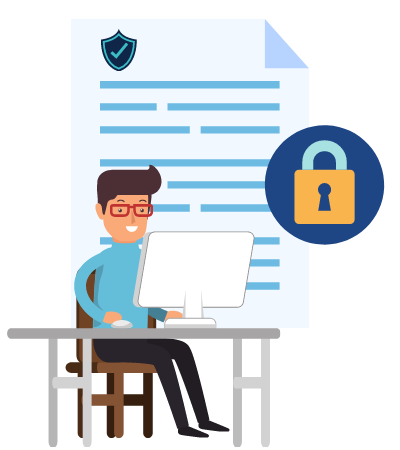
Learn the Basics of Ethical Hacking
Book a class worth 600 INR for FREE.
Guided by expert instructors
We won’t hound you with spam calls and harass you into buying our product.
Powered by the most scientific curriculum
Our mission is to create a loving coding learning experience for your child and we do that by personalizing our program according to their skills, potential and interest.
The pace of instruction unique to each student
We don’t believe in creating a stressful experience for you and your child by scaring you into buying our product. Our mission is to help your child fall in love with coding.
Course Curriculum
Module 01: Introduction
- What Does This Course Cover?
Module 02: Mastering the Terminal Window
- Kali Linux File System
- Managing Users and Groups in Kali
- Files and Folders Management in Kali Linux
- Remote Connections in Kali
- Kali Linux System Management
- Networking in Kali Linux
Module 03: Bash Scripting
- Basic Bash Scripting
- Printing to the Screen in Bash
- Variables
- Script Parameters
- User Input
- Functions
- Conditions and Loops
Module 04: Network Hosts Scanning
- Basics of Networking
- Network Scanning
- DNS Enumeration
Module 05: Internet Information Gathering
- Passive Footprinting and Reconnaissance
Module 06: Social Engineering Attacks
- Spear Phishing Attacks
- Payloads and Listeners
- Social Engineering with the USB Rubber Ducky
Module 07: Advanced Enumeration Phase
- Transfer Protocols
- E‐mail Protocols
- Database Protocols
- CI/CD Protocols
- Web Protocols 80/443
- Graphical Remoting Protocols
- File-Sharing Protocols
Module 08: Exploitation Phase
- Vulnerabilities Assessment
- Services Exploitation
Module 09: Web Application Vulnerabilities
- Web Application Vulnerabilities
Module 10: Web Penetration Testing and Secure Software Development Lifecycle
- Web Enumeration and Exploitation
- Secure Software Development Lifecycle
Module 11: Linux Privilege Escalation
- Introduction to Kernel Exploits and Missing Configurations
- Kernel Exploits
- SUID Exploitation
- Overriding the Passwd Users File
- CRON Jobs Privilege Escalation
- sudoers
- Exploiting Running Services
- Automated Scripts
Module 12: Windows Privilege Escalation
- Windows System Enumeration
- File Transfers
- Windows System Exploitation
Module 13: Pivoting and Lateral Movement
- Dumping Windows Hashes
- Pivoting with Port Redirection
Module 14: Cryptography and Hash Cracking
- Basics of Cryptography
- Cracking Secrets with Hashcat
Module 15: Reporting
- Overview of Reports in Penetration Testing
- Scoring Severities
- Report Presentation
Module 16: Assembly Language and Reverse Engineering
- CPU Registers
- Assembly Instructions
- Data Types
- Memory Segments
- Addressing Modes
- Reverse Engineering Example
Module 17: Buffer/Stack Overflow
- Basics of Stack Overflow
- Stack Overflow Exploitation
Module 18: Programming with Python
- Basics of Python
- Running Python Scripts
- Debugging Python Scripts
- Practicing Python
- Python Basic Syntaxes
- Variables
- More Techniques in Python
Module 19: Pentest Automation with Python
- Penetration Test Robot

